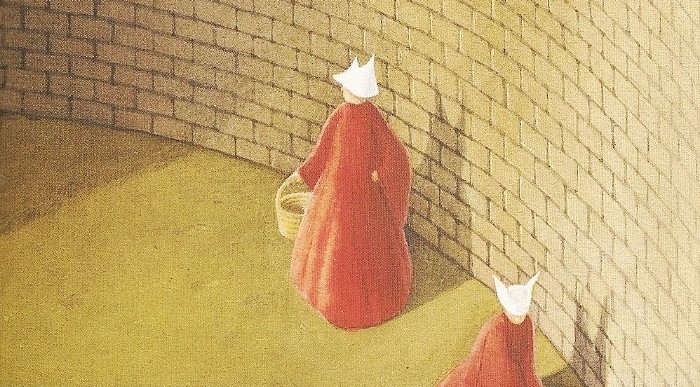 In the Summer of 2016, I read – among other things – what turned out to be one of the most disappointing books I’ve invested time in. My copy of Margaret Atwood’s The Handmaid’s Tale has been collecting dust under my bed for about a year now, but within the past six months, the novel managed to pique many Americans’ interests. In February 2017, about thirty years after its publication, The Handmaid’s Tale hit Amazon’s best seller list and remains on it today. Part of the hype may be due to Hulu’s TV series of the same name which premiered in April. Still, the sudden interest in the story is not surprising.
In the Summer of 2016, I read – among other things – what turned out to be one of the most disappointing books I’ve invested time in. My copy of Margaret Atwood’s The Handmaid’s Tale has been collecting dust under my bed for about a year now, but within the past six months, the novel managed to pique many Americans’ interests. In February 2017, about thirty years after its publication, The Handmaid’s Tale hit Amazon’s best seller list and remains on it today. Part of the hype may be due to Hulu’s TV series of the same name which premiered in April. Still, the sudden interest in the story is not surprising.
For those unfamiliar with the tale, it’s set in the Christian theocratic dystopia Gilead, where women are oppressed and either forced to bear upper-class men’s children, forced to serve upper-class men, or forced to marry upper-class men and watch as they impregnate other women. The Handmaid’s Tale follows Offred (literally, of-Fred), the Commander’s Handmaid — that is the woman designated to be impregnated by him.
I originally disliked the book because I found the characters flat and underdeveloped and the plot anticlimactic. However, when the Hulu mini-series was released a few months ago it was met with an outburst of comments along the lines of “this is all too relevant in today’s America,” so I thought to myself, did I miss something?
This first of all seems like a bit of an overreaction, especially considering there are places in the world where women are actually living this dystopian reality. Our sisters in Saudi Arabia, for example, are lawfully punished if impregnated out of wedlock, must abide by strict dress codes and must be granted male permission to do anything from studying to getting medical attention.
The second issue with The Handmaid’s Tale is the female identity as solely rooted in and dependent on sex. In Gilead, women cannot read, write, wear a pair of jeans, hang out with friends or, of course, have sex with whom they please. However, the main thing that seems to matter not only to the regime but to women themselves is how much power they have over their sex lives. One of Offred’s biggest acts of rebellion, for example, is enjoying sex with the Commander’s driver.
This may be understandable in a dystopia such as Gilead. What I don’t understand, however, is the feeling of relatability that seems to have stricken many American women. It is sad that many women relate to fictional characters who are so oppressed that their only source of identity is their sexuality.
Thanks to women who came before us, we can wear what we want, get an education, read, write, play music, have a family etc. This is a time to cultivate ourselves with the many means we have and to make our valuable presence heard rather than buying into the idea that we are oppressed because we need more sexual freedom. Gilead might be a place where women are alone, one dimensional and oppressed, but our reality should be one of mutual female uplifting, personal richness and empowerment.






Leave A Comment